
The Chinese market, which is closely linked to the Hong Kong market, has experienced significant volatility and challenges in recent years. Many Chinese investors have seen their equity investments perform poorly, with stocks such as Alibaba, Tencent, etc. experiencing prolonged downtrends. In contrast, an alternative investment has demonstrated impressive returns over the same period: gold.
In this article, I will explore the stark contrast between the performance of Chinese equities and gold, highlighting the importance of diversification and asset allocation in one’s investment strategy.
Over the past 25 years, the Hang Seng Index, a key benchmark of the Hong Kong equity market, has remained stagnant.
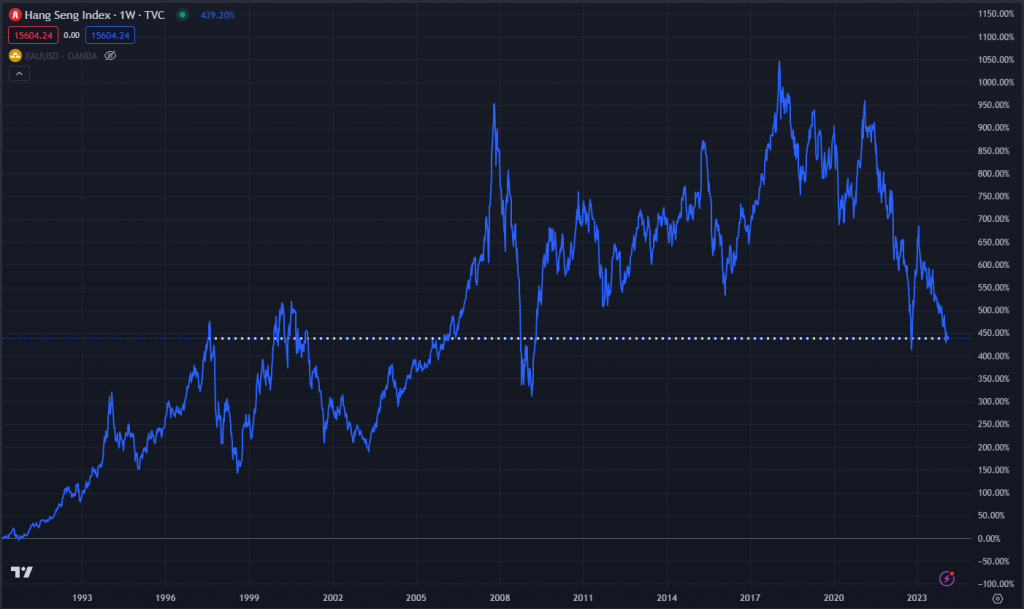
In fact, it is currently at the same level as it was 25 years ago, leaving investors virtually no return on their investments. On the other hand, gold, denoted by the orange line in the chart, has seen a remarkable 600% increase during the same period.
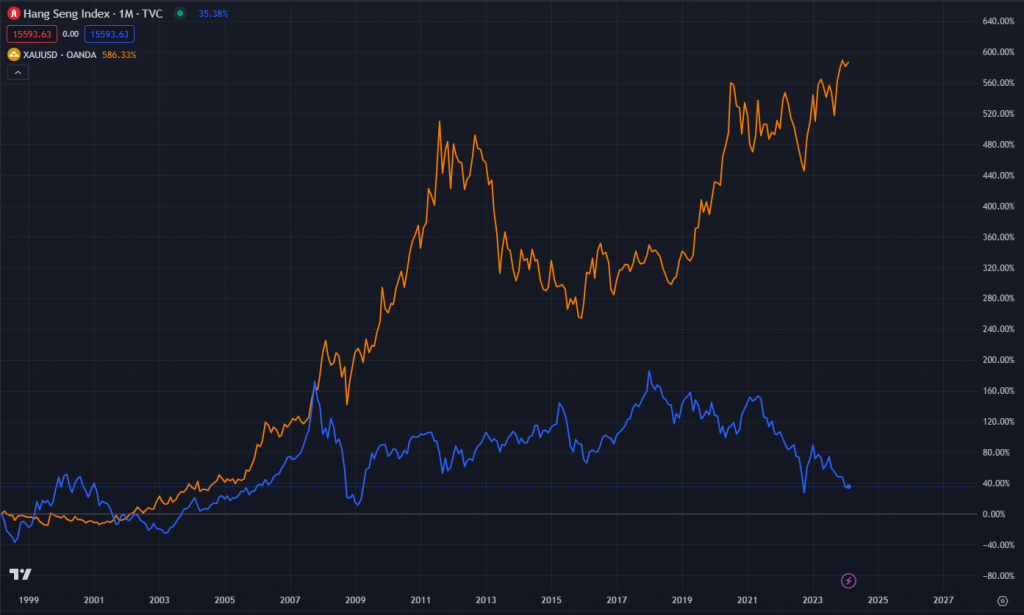
It is essential to note that the Hong Kong dollar, to which the Chinese market is closely tied, is pegged to the US dollar. Therefore, the performance of gold in Hong Kong dollars and in USD is essentially the same. This comparison allows us to draw meaningful conclusions about investment performance over time.
From the bottom of the market in 2003, the Hong Kong equity index has increased by a mere 80%, while gold has witnessed a staggering 450% increase.
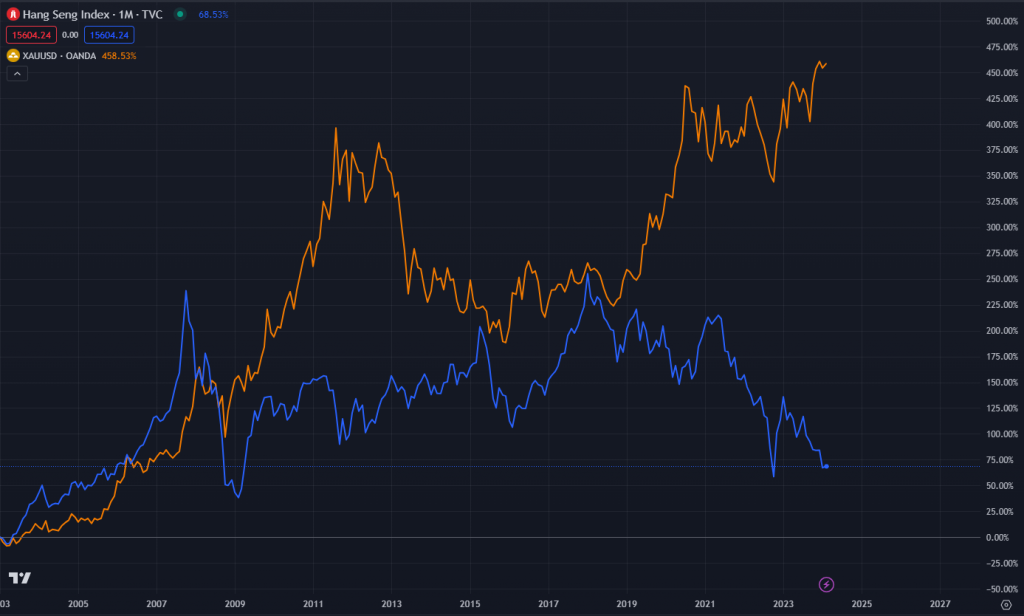
Even when considering the peak of the market in 2008, the performance gap between the two becomes more evident. Gold has increased by 160% from the peak of 2008, while Hong Kong index, has declined by 50% during the same period.
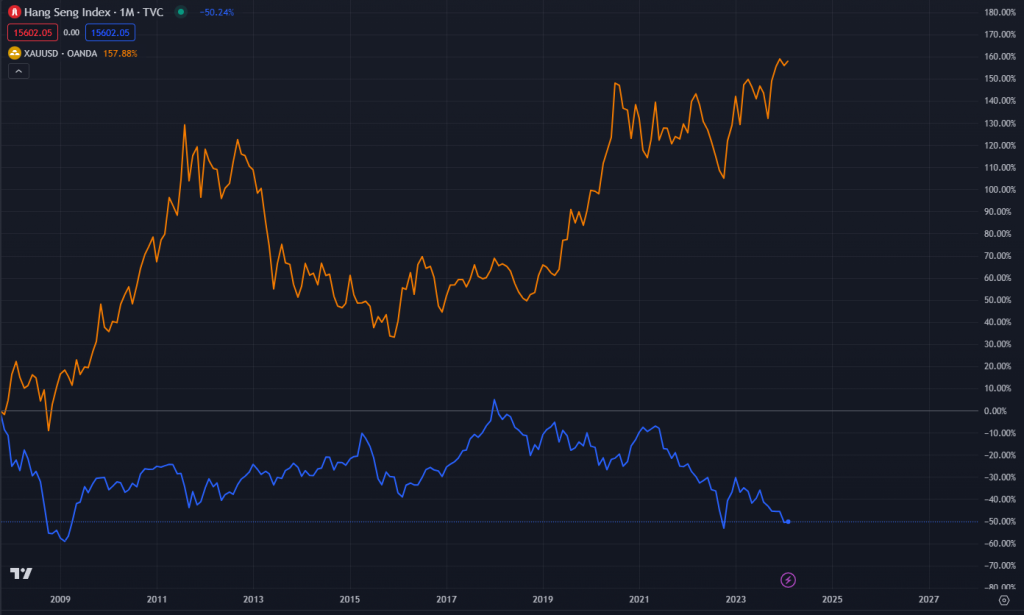
These trends persist even when analysing the performance since pre covid top. Gold saw a 55% increase, while the Hang Seng index experienced a significant 53% decline.
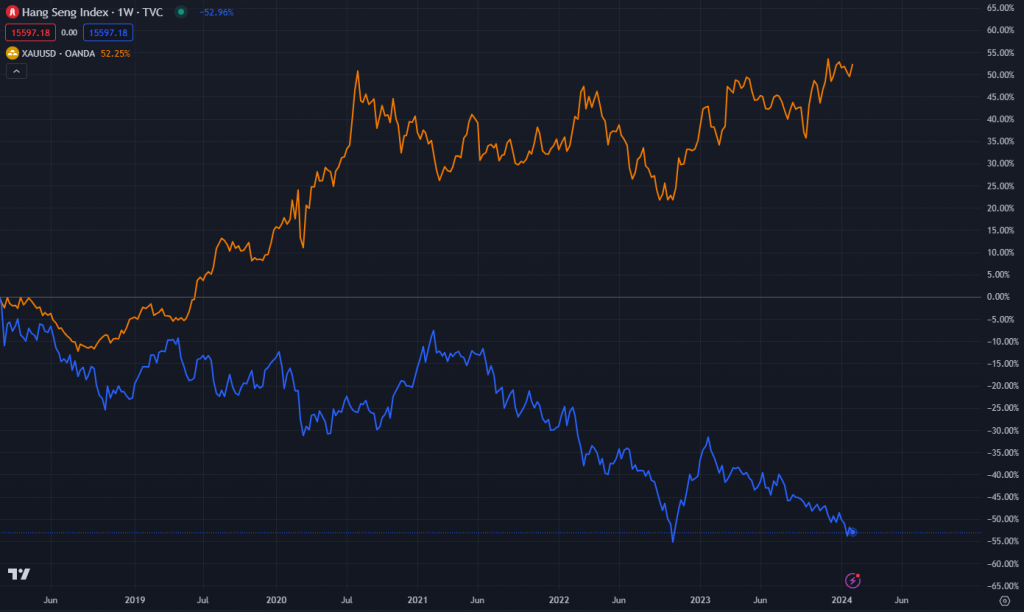
The consistent outperformance of gold over Chinese equities raises an important question: could a similar scenario occur in India or any other growth market? India, for instance, has been a leading growth market for the world, attracting significant investments. However, the example of the Chinese market suggests that strong economic growth does not necessarily translate into positive stock market performance.
This realisation should prompt investors to reconsider their approach to investment and embrace the principles of diversification and asset allocation. Blindly allocating all investments into equities may prove to be a risky strategy, as demonstrated by the Chinese market’s lacklustre performance. Instead, a well-rounded investment plan should consider diversifying across different asset classes, such as stocks, bonds, real estate, and even alternative investments like gold.
Diversification helps reduce the risk associated with investing in a single asset class. If one sector or market performs poorly, diversified investments in other sectors or asset classes can help offset potential losses. Gold, for example, has historically performed well during times of economic uncertainty or market turmoil, acting as a hedge against inflation and currency devaluation. By including gold or other alternative assets in an investment portfolio, investors can enhance their overall risk-adjusted returns.
Asset allocation refers to the process of dividing investments among various asset classes based on an individual’s risk tolerance, investment goals, and time horizon. It is a strategic approach that seeks to optimise returns while managing risk. A well-diversified portfolio should include a mix of assets with different levels of risk and return potential. This approach ensures that investors are not entirely dependent on the performance of a single asset class, reducing vulnerability to market fluctuations.
The example of the Chinese market serves as a cautionary tale for investors worldwide. It illustrates the importance of looking beyond conventional wisdom and questioning the assumption that market prices will always align with economic growth. Economic growth does not guarantee stock market success, and investors need to be prepared for all possibilities. A pragmatic approach that embraces diversification and asset allocation can help mitigate risks and enhance long-term returns.

If you have any questions, please write to support@weekendinvesting.com








